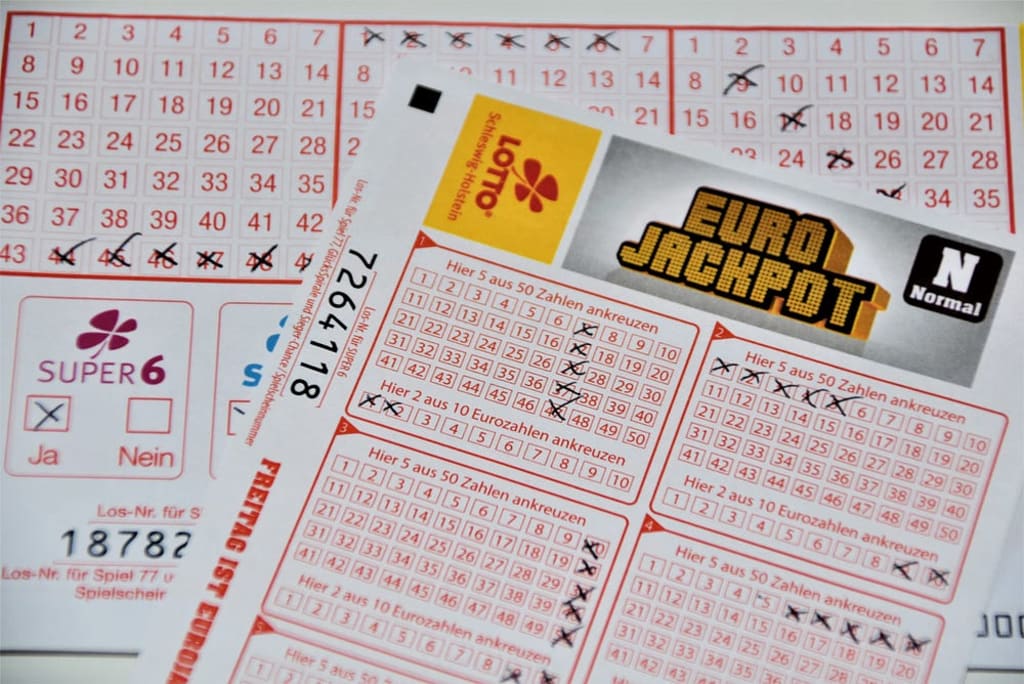Protect Yourself from Foreign Lottery Scams
When it comes to protecting yourself from foreign lottery scams, it's crucial to understand the signs and strategies scammers use.

When it comes to protecting yourself from foreign lottery scams, it's crucial to understand the signs and strategies scammers use. In this guide, we will walk you through the common tactics employed by these fraudsters and provide you with essential information to stay safe. Remember, being aware is the first step toward safeguarding your finances and personal information.
Get Access Now: Social Catfish scams Find Toolkit
Section 1: Recognizing Foreign Lottery Scams
1.1 The Promise of Unrealistic Rewards:
Foreign lottery scams often arrive unexpectedly by mail or email, claiming that you have won significant prizes or lump sum payments. Whether they pretend to be from Spain, Ireland, Greece, or any other country, these "winning" notices are nothing but fraudulent schemes designed to deceive unsuspecting individuals.
1.2 The Catch:
Beware of the catch scammers set to trick you into parting with your money or divulging sensitive information. They may request payment for transfer fees or taxes, or ask for your bank account details. Some scammers even send fake checks, instructing victims to deposit them and return a portion of the funds to cover fees and taxes. Unfortunately, these checks bounce, leaving victims at a loss.
Section 2: Identifying Warning Signs
2.1 Winning Without Participation:
If you receive a notice claiming you won a prize, but you never purchased a ticket or entered a lottery, it's a clear indication of a scam. Legitimate lotteries and sweepstakes require active participation and don't randomly select winners.
2.2 Mass Mailing:
When a "winning letter" arrives personally addressed to you but is sent via bulk mail, it's a red flag. Thousands of others worldwide are likely receiving the exact same notification, revealing the lack of legitimacy behind the claims.
2.3 Requests for Payment Up-Front:
Scammers often demand upfront payment to release your supposed "winnings." They may ask for fees, shipping and handling charges, or processing fees. Remember, authentic sweepstakes or lotteries never require you to pay to collect your prize.
2.4 Solicitation of Personal Information:
Be cautious if you are asked to provide your bank account details, credit card information, or social security number as a condition for receiving a prize. Reputable organizations do not require such sensitive information to award prizes.
2.5 Urgency and Immediate Action:
Scammers employ tactics to create a sense of urgency, pressuring you to act quickly to claim your prize. They might threaten to give the prize to someone else if you don't comply immediately. Take your time to evaluate the situation and never rush into making decisions.
Section 3: Strategies Used by Scammers
3.1 Impersonating Government Agencies:
Scammers often pretend to represent government agencies or official organizations to appear trustworthy. They might claim to be associated with a government-supervised lottery or sweepstakes. Remember, legitimate government entities will not demand money for prize collection.
3.2 Misusing Recognizable Company Names:
Fraudsters may impersonate well-known companies that conduct genuine sweepstakes. To verify the legitimacy of a communication, contact the actual company using their official contact information. Do not rely solely on the information provided by the person reaching out to you.
3.3 Exploiting Digital Platforms:
Scammers leverage various digital platforms to send messages, such as texts, emails, or social media notifications. These messages might promise gift cards, discounts, or expensive prizes like iPads or cars. Avoid responding to such messages and refrain from sharing personal information or clicking on suspicious links.
3.4 Fictitious Exclusive Prizes:
Some scammers attempt to convince victims that they are the sole winners of a particular prize. However, if the same message was received by many others, it indicates a widespread scam. Check online for reports of similar messages to verify their authenticity.
3.5 Foreign Lottery Offers:
Messages about foreign lotteries are almost always scams. Playing a foreign lottery is illegal for U.S. citizens, and scammers exploit this by enticing you to break the law. Furthermore, purchasing a foreign lottery ticket often leads to additional fraudulent offers and investment schemes.
Section 4: Protecting Yourself and Taking Action
4.1 Awareness and Skepticism:
By being informed about the tactics scammers use, you can protect yourself and your loved ones. Stay skeptical and question anything that seems too good to be true. Remember, real prizes do not require upfront payments or personal information.
4.2 Research and Verification:
Before participating in any contest or responding to a prize notification, conduct thorough research. Look for reviews, complaints, or reports associated with the contest or the organization behind it. Verify the legitimacy of the information independently to ensure your safety.
4.3 Reporting Scams:
If you believe you have encountered a prize scam, it's crucial to report it promptly. Inform the Federal Trade Commission (FTC) by visiting ReportFraud.ftc.gov Additionally, contact your state attorney general's office and your local consumer protection office to help others avoid falling victim to similar scams. If you received the scam via mail, report it to the U.S. Postal Inspection Service.
4.4 Identity Protection:
If you provided personal information to a scammer, take immediate steps to safeguard your identity. Visit IdentityTheft.gov for guidance on protecting your sensitive information and preventing further harm.
4.5 Sharing Awareness:
Spread the word about prize scams among your friends and family. By educating others about the warning signs and strategies scammers use, you can collectively contribute to a safer online environment.
Foreign lottery scams pose a significant threat to individuals seeking fortune and excitement. By familiarizing yourself with the signs of these scams, understanding the strategies employed by scammers, and taking proactive measures, you can minimize the risk of becoming a victim. Remember, it's essential to remain vigilant and trust your instincts when it comes to offers that seem too good to be true.
About the Creator
MrKarthikKN
Founded in 2020 by MrkarthikKN has come a long way from its beginnings in Global. When MrkarthikKN first started out, Blog passion for - Electronic Products and Info" drove them to job,






Comments
There are no comments for this story
Be the first to respond and start the conversation.